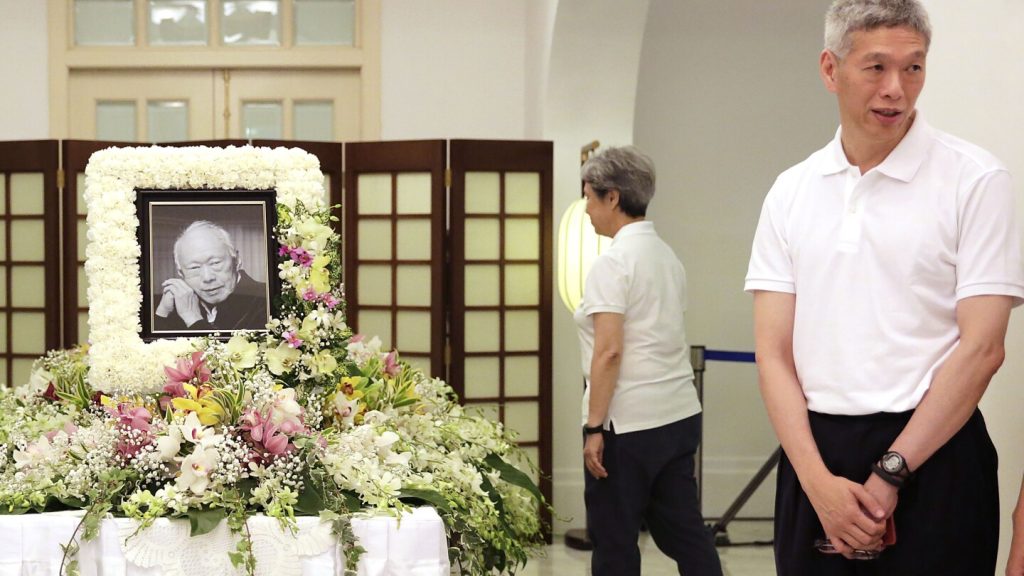Former Singapore Prime Minister Lee Hsien Loong’s estranged brother, Lee Hsien Yang, has been granted asylum in the U.K, where he describes himself as a “political refugee” due to persecution in his home country. The Lee brothers, sons of Singapore’s founding prime minister Lee Kuan Yew, have been embroiled in a public feud since 2017 over the family home. Lee Hsien Yang has accused the Singapore government of persecuting him, his wife, and his son, prompting his decision to seek asylum in the U.K. He remains a Singapore citizen and hopes to eventually return home safely.
In an interview with The Guardian, Lee Hsien Yang criticized the Singapore government and alleged its involvement in facilitating money laundering activities. He urged the world to see beyond Singapore’s false assertions and recognize its role as a key facilitator for illicit financial activities. The Singapore government responded to these allegations, stating that there is no basis to the claims made in The Guardian’s report. It emphasized Singapore’s robust system to combat money laundering and other illicit financial flows, consistent with international standards.
The ongoing family feud between the Lee siblings centers on their father’s family home, with Lee Hsien Yang and his sister, Lee Wei Ling, accusing their eldest brother of abusing his power to prevent the demolition of the property as per their father’s wishes. Lee Kuan Yew, who passed away in 2015 after more than three decades as Singapore’s leader, left behind a contentious legacy that has led to internal conflicts within the family. Lee Hsien Loong stepped down as prime minister in May, handing power to his deputy but retaining a Cabinet position as senior minister.
Lee Hsien Yang’s decision to seek asylum comes after years of being embroiled in official investigations and legal proceedings in Singapore. He and his wife were investigated over allegations of providing false evidence in judicial proceedings related to Lee Kuan Yew’s will. Lee Hsien Yang’s entry into politics in 2020 as a member of the opposition party signaled his dissatisfaction with the ruling party led by his brother, stating that it had “lost its way.” The complex dynamics within the Lee family and their deep-rooted issues have played out in the public sphere, shedding light on the challenges faced by prominent political figures in maintaining family relationships amidst competing interests.
The U.K. Home Office has not provided immediate comment on Lee Hsien Yang’s asylum status, indicating that the situation may still be under review. His case highlights the complexities faced by individuals who seek political asylum due to persecution in their home countries. Despite being a citizen of Singapore, Lee Hsien Yang’s decision to seek asylum underscores the gravity of the situation and the challenges he faces in returning to his home country amidst ongoing disputes with the government. The outcome of his asylum application may have broader implications for the ongoing saga within the Lee family and Singapore’s political landscape.
Eileen Ng reported from Kuala Lumpur, Malaysia. The international attention on Lee Hsien Yang’s asylum status and the family’s feud brings into focus the intersection of family dynamics, political power struggles, and the pursuit of justice and freedom in a complex geopolitical landscape. Lee Hsien Yang’s asylum status in the U.K. marks a significant development in the ongoing saga within the Lee family, with implications for Singapore’s political future and the legacy of its founding father, Lee Kuan Yew. As the situation continues to unfold, the world watches closely to see how the Lee family’s internal conflicts and their broader implications play out on the global stage.


